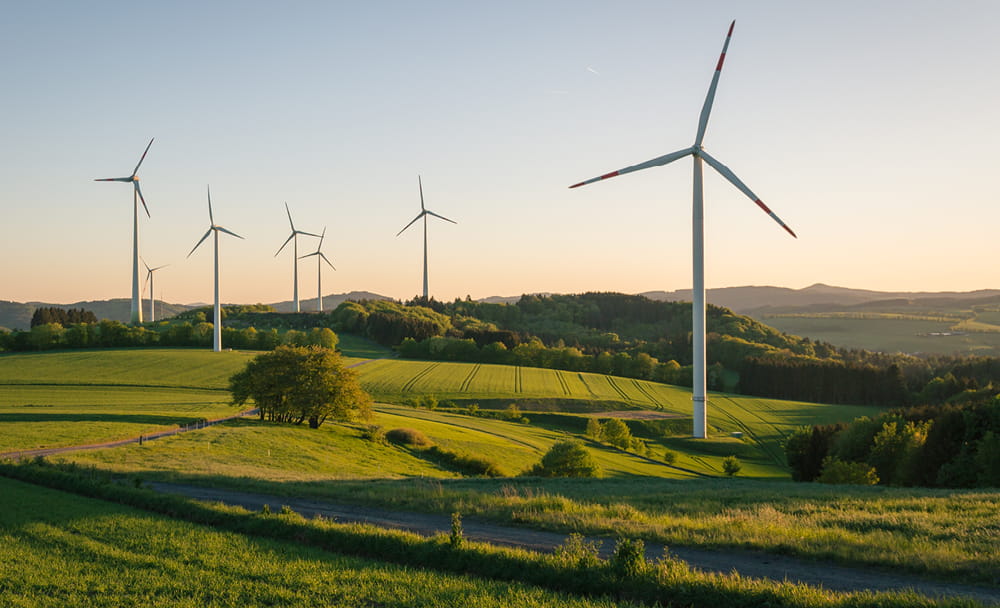In 2020, the UK missed its 2020 recycling target after nearly a decade of stalled recycling rates, according to the National Audit Offices recent report on “The Government’s Resources and Waste Reforms for England”.
Waste plays a sizeable part in the UK’s Net Zero goals, disposal and treatment of waste alone (including wastewater) represented 6% of UK greenhouse gas emissions in 2021, so there is a clear interest in reducing the UK’s waste output and improving the processes in place to handle waste that is unavoidable.
Much is discussed around the real estate sectors waste impacts and responsibilities when considering construction and refurbishment, but actions that can be taken in existing work environments to help combat the issue are often overlooked.


Taking Responsibility for our Waste
Giles Flaxton • 16/08/2023
What are your thoughts on the current mindset of office workers with regards to waste habits?
What part do you believe recycling has to play in this?
Recycling is a key part of an effective waste strategy. Centralised waste bins in an office are the ‘norm’ now and we have come a long way from everyone having a wastepaper bin under their desk. We are also used to segregating our waste at home and generally we’re so much more aware of the environmental consequences of not taking responsibility for the waste we create. We must ensure that we maximise recycling rates and aim for zero waste.
However, resources are still needed to transport and sort the recycling for reuse which of course means more resource use. Sometimes waste is burnt to produce energy. That’s classed as waste diversion from landfill but really it is just a sophisticated way of setting fire to our problem.
I think we have made a lot of progress but somehow, we have got stuck at focusing on recycling and have forgotten the importance of preventing the waste being generated in the first place.
What do you believe to be the solution?
I work in the Facilities Management sector and we are partly to blame. We spend our days trying to make our client’s office lives as frictionless as possible, we endeavour to hide our work behind the scenes and make the office always look clean and tidy. There are nicely labelled bins for waste/recycling, and it magically disappears. Our focus is on a hospitality mindset.
Our customers don’t really need to think about the waste anymore. I think we need to be more transparent and tell our customers what is happening to their waste, no more out of sight out of mind. Think about the BBC Blue Planet series and how it raised awareness of plastic pollution, once images of plastic in the sea were visible on our screens, we were all forced to think about our contribution to the problem.
As well as encouraging people to continue recycling and rewarding that good behaviour we need to focus more on waste avoidance. If you can stop the waste being created in the first place, then of course you don’t have to use resources to recycle it.

(Source: ISM waste & recycling. https://ismwaste.co.uk/help/what-is-the-waste-hierarchy)
How will the office of the future deal with waste?
Firstly, I think there is going to be very little ‘waste’. Circular economy principles will be embedded in everything we do and the idea of just throwing something away will feel ‘wrong’ and socially frowned upon in the same way as driving a car without wearing a seatbelt is seen as irresponsible.I think bringing lunch to work in reusable containers will be much more common, not just from home but when you buy something from the local sandwich shop. If you think about the volume of plastic and paper waste going into recycling every lunchtime it is phenomenal. Also, those shops and cafes won’t be handing out bags and multiple napkins anymore, not accepting a paper bag for your sandwich and crisps is something you can start doing today.
Waste bins will look very different too, I think they will be smaller because there will be a lot less waste overall, recycling and reuse will be the focus of the bins that remain. Will there be a bin for non-recyclables in the long-term? Possibly, but I think it will be a small bin, not used often and people will feel guilty for using it. I think recycling will be easier and we will be able to deal with the trickier waste streams like food contaminated items. We will also have found a way to simplify the signage on bins, no more multiple pictures and text!
Deliveries will be different too, packaging will be reusable – or at the very least recyclable – and the delivery driver will remove it, not leave it in the office for us to deal with.
Any final thoughts?
LEADING THE WAY TO A MORE SUSTAINABLE FUTURE
Sustainable Insights

Research • Sustainability / ESG
Impact Investing and Commercial Real Estate: A Catalyst for Change

Article • Sustainability / ESG
Greenwashing and the Sustainability Disclosure Requirements

Article
Agricultural Land Value Continues Upward Trajectory Across Nation

Insights • Sustainability / ESG
COP27 Egypt Climate Summit: Implications for Real Estate

Research • Technology
The Electric Vehicle Revolution

Research • Sustainability / ESG
Why ESG Matters to the Future of Investing
